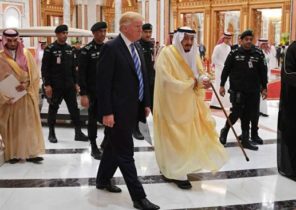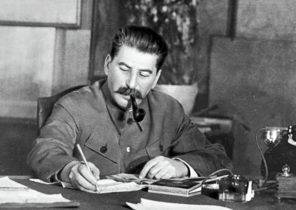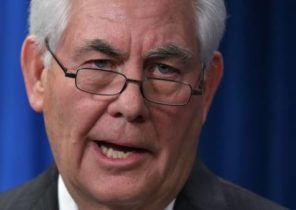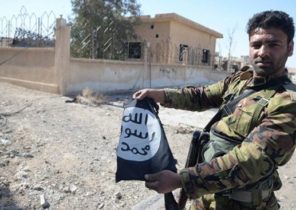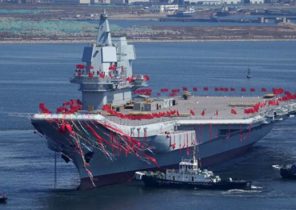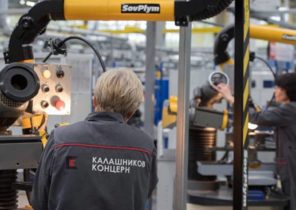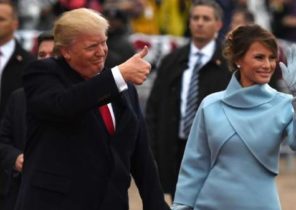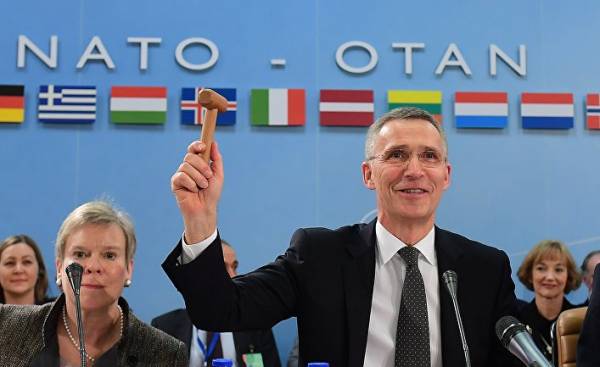
Today in Brussels will host a meeting of heads of state and government of countries — members of NATO.
This meeting at the highest level — not from the category of formal “summits” of NATO-known format. Its objective is to acquaint NATO leaders with a new US President Donald trump. Therefore, following the meeting is not expected to publish any communiqué. However, at this meeting, which brought together all the leaders of the countries — members of NATO, it is expected the adoption of some important decisions focused on the future.
First of all, trump, presumably, will announce his plans for the joint counter-terrorism and in this context expresses the need for the member countries of NATO was a big supporter of the fight against ISIS (banned in Russia — approx. ed.) in Iraq and Syria. But even if trump will sound this expectation within NATO to ensure unanimity in this matter, it seems, is not easy. In France the new President; in addition, in June parliamentary elections. In September, Germany will hold parliamentary elections. And UK goes for parliamentary elections on 8 June.
On the issue of providing greater support to the fight against terrorism, the Kingdom under the influence of the terrorist attack in Manchester can take a closer to the US position. France and Germany are somewhat more cold approach to this issue. France due to the fact that it uses a part of its military resources in operations to combat terrorism in Africa, are reluctant to apply to participate in the war on the battlefield in Iraq and Syria. But Germany, as we know, keeps closer to France in the question of the military contribution to the fight against ISIS.
Despite this, avoid severe differences and the emergence of the idea that the consensus within NATO has shifted, at this first General meeting with trump is expected to search for compromise formulas. The war that continues against ISIS in Iraq and Syria, unlikely to become a NATO operation. The member countries of NATO, if you wish, you can separately make the decision to participate in this war in the best of their ability, including giving the military if necessary.
We all know that Turkey is full of enthusiasm in this matter. But there are still conditions that prevent Turkey’s participation in operations in the Syrian raqqa. It is therefore expected that in Brussels, Turkey is once again presenting their point of view.
Second, in Brussels, trump repeated his opinion that the European allies must increase defense spending to 2% of GDP. US spending on defense — almost 4% of GDP. Recently, trump said that the US aims to increase military spending by 10% in 2018 and 40% in the next few years. It is expected that the target of 2% for NATO members is implemented by 2024. Turkey has not yet achieved this level.
Question about military spending important. Don’t forget that while NATO is undergoing an internal debate on this issue, Russia for the last ten years has increased its military spending by almost 90%. Despite the fact that all over the world after the cold war the efforts of the armament began to decline, it becomes clear that in recent years this trend has reversed, and everything goes to a new arms race. It is argued that the main reason for this development is the Russia’s conflict with Georgia in 2008 and Ukraine in 2014.
Today, NATO leaders may also discuss its policy towards Russia. When it became clear that during the election campaign in the United States advisors trump came into close contacts with Russian officials, it caused serious confusion. In these conditions, many are concerned about how today, trump will talk about the future of Russia’s relations with NATO.
Countries that were members of the former Eastern bloc, and now are NATO members, especially insist on the need for a tougher policy towards Russia, while some members of the Alliance in the period of reconstruction of Euro-Atlantic security architecture in favour of a more compromising approach in relations with Russia.
Today’s meeting of leaders of NATO will be an important milestone on the way to the emergence of the road map in a new policy, which the Alliance will pursue in the near future. The likelihood that Turkey will regain the position in a predictable and reliable strategic ally in foreign policy, is directly proportional to the policies that it will pursue in NATO.
Instead of anti-European statements, which have lately become familiar, Turkey is required to develop a consolidating and unifying rhetoric that will unite her with Europe. Our allies want to see in Turkey a real partner, not a burden.
